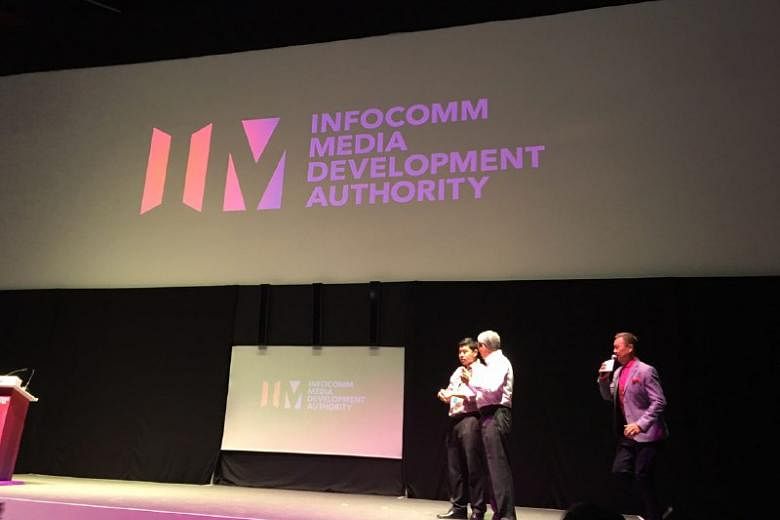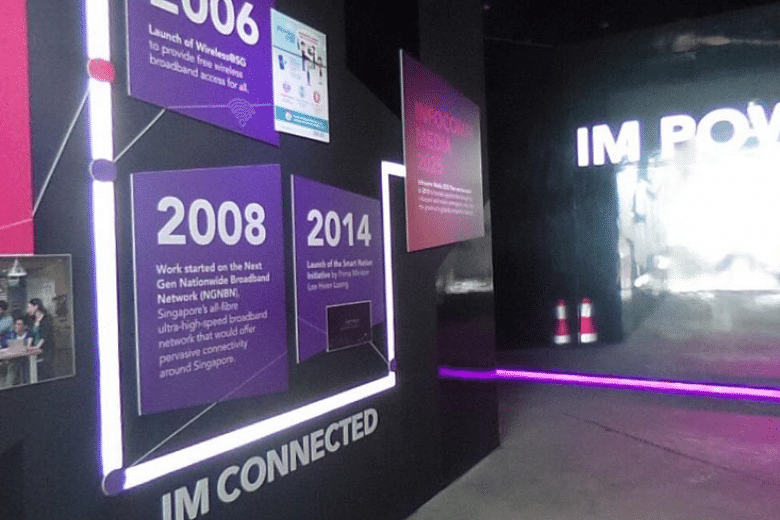SINGAPORE - Soon, students need not leave the classroom to go on a local heritage trail at Katong or Duxton. They just need to don a pair of virtual reality (VR) goggles.
VR technologies may also help medical trainees perfect their skin grafting or bypass surgery skills in a much shorter time. Existing methods involving cadavers and mannequins are expensive and hard to come by.
These projects, set in motion by the new Info-communications Media Development Authority (IMDA), mark the agency's launch on Friday (Sept 30).
Speaking at Infinite Studios at Mediapolis on Friday evening, Minister for Communications and Information Yaacob Ibrahim said the new agency is now officially carrying the mandate to help Singapore seize new opportunities in the converging infocomm and media sectors.
"Convergence is taking place all around us - from social media live broadcasts to Pokemon Go!" said Dr Yaacob.
"IMDA's mission is to lead Singapore forward into a digital future where infocomm media convergence and technological change will change the way we live, work and play."
IMDA comes from the merger of the Infocomm Development Authority (IDA) and the Media Development Authority (MDA).
The IDA looked after the regulatory and promotional aspects of telecommunications services, including the sale of mobile handsets, while the MDA oversaw content on traditional media such as television.
The restructuring follows the launch last August of the Infocomm Media 2025 plan, which charts the ways technology will be used to transform how people live, learn, work and play through 2025.
Driverless vehicles and home-integrated sensors are some of the ideas outlined in the 10-year plan, the first to take into account how media and infocomm interests have become intertwined.
Dr Yaacob said IMDA will achieve its mission by focusing on three broad strategies: developing a strong infocomm sector, building an environment of trust through regulation and improving citizens' lives using infocomm technologies.
The first thrust involves, among other things, equipping organisations here with smart infocomm solutions to solve daily problems or achieve new breakthroughs.
For instance, IMDA is working with locally-based Gurusoft to use the latter's dock scheduling and queue management system at CapitaLand's malls to reduce congestion at the loading and unloading bay.
Canadian-based Side Effects Asia Pacific and Singapore-based production firm Beach House Pictures are now creating VR content for hospitals and primary schools, respectively.
IMDA is also looking to streamline the Telecommunications Act and Films Act to keep pace with changing norms and technologies in a digital age.
To build a digitally inclusive society, IMDA has partnered non-proft groups The Good Life Co-operative and SATA Commhealth to install sensor-based health-monitoring kiosks at community centres and in homes.
"While other countries grapple with digital divides, IMDA will help us generate a digital multiplier for our people," said Dr Yaacob.



